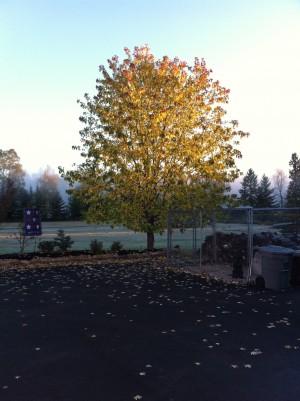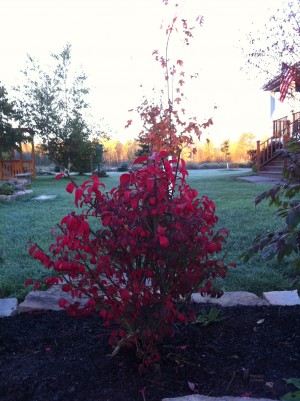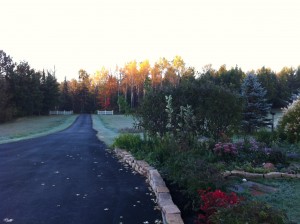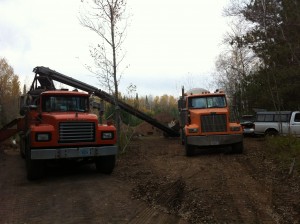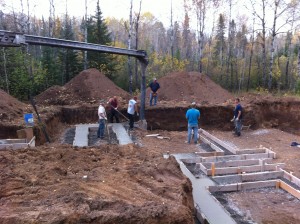I’ve been accused by many friends, family, and colleagues of being entrenched in the present, or worse yet, riveted in the past. There’s a grain of truth to the notion that I’m not the most adaptable person in the human herd. And my avocation, looking back at events and history, real or imagined, to create fiction, well, that doesn’t lend itself to dreaming about rocket cars and robot prostitutes, now does it? There was a time in my young adulthood when I was a future thinker and reader. I inhaled science fiction and fantasy, being partial to the works of Ursula LeGuin and Frank Herbert, and dreamed of where my life might be headed, on what distant shore my boat might land. Well, here I am, approaching sixty, living within a half-hour of the neighborhood that formed my persona. The wind has died. My boat is languishing in the doldrums. I have stepped onto familiar shores, set my anchor, put the LeGuin and Herbert books on the shelf, rolled up my sleeves, and organized a pretty simple life around a few acres of trees and pastures just outside of town. Did I dream of such a rooted existence? Was the path I stumbled onto and steadfastly followed my own or one that society, life, and/or God chose for me? I often wonder how it is I came to be to where I am. Not that I’m disappointed, you understand. I have a wonderful wife, four handsome, intelligent, good-natured sons. Notice I used the present tense in that sentence. See, I’m not tied solely to the past. At least, I don’t think I am.
These sorts of maudlin thoughts are not unique to me as I watch the advance of colors across the landscape of northeastern Minnesota. The gradual sweep of orange, yellow, red and deep brown begins low to the ground where clinging vines and youthful maples flash early scarlet. The inevitable progression touches the sculpted tops of ruler-straight tamaracks, transforming green to shimmering gold, and afflicting Northland residents with a sense that the march of seasons in our neck of the woods is unstoppably upon us. Of course, there’s a scientific basis behind why foliage turns color, why leaves drift to the ground, why we are left to consider a landscape of gray and brown splattered with dashes of evergreen. But I don’t care to learn the science behind the art. I have no desire to understand the perpetual change of the advancing seasons. I only want to stop and think about the bigger picture and how God, family, death, love, and unfinished books and stories fit into the equation of my life.
Despite my noted stubborn opposition to change, I realize, as I sit listening to West Coast Live on KUMD via live streaming on my iMac, typing this piece, momentarily distracted by the antics of a four-month-old black Labrador who as imperiously claimed the cushioned chair next to my writing desk, that there’s not a hell of a lot I can do to stop the colors from changing, dogs from aging, or a myriad of other alterations that time has and will foist upon me.
Three shots ring out from the river below the house as I type. A duck hunter has likely brought down a wayward wood duck, perhaps a male resplendent in color, from concealment. Hunting too, as I understand it, is undergoing change. Few young people are following the traditions of their ancestors and taking up arms to harvest game.
What does the future hold for hunters, for hunting?
Another question with no answer, at least, not from me. A mandolin sings. Fingers fly. Kena chews a rope toy, her Labrador brain content in the present, regaling in the fact that I haven’t booted her off the chair. As a young father and dog owner, I would have made her leave the furniture.
Dogs don’t belong on furniture, is what I would have told my sons.
Now I consider such admonitions a waste of time. There’s no future in worrying about whether a young Labrador wet from an autumnal swim in the Cloquet River will harm an old chair. She’s family. I let her be and smile as she tosses her toy in the air and catches it with her mouth, completely unaware that I am writing about her.
My future, my wife’s future, will be unexpected. Oh, some things about where we’re headed are predictable. There’s the same destination, the same village at the end of the road for all of us. But the journey from here to there, a journey of color and light and story and song and dogs and canoes and fishing trips and grapes and deer and Russian berries and gleaming jars of tomato sauce fresh from the garden and grandchildren and great-grandchildren is not yet charted. The details are not yet known. There will be some things that remain constant and, assuredly, there will be change. There already is.
Years back, my father and I purchased tracts of land abutting the Cloquet River in Fredenberg Township. Rene’ and I built a new home on the smallest parcel, a fifteen acre pasture that’s now the center of our small, present-sense universe. The other wooded parcels we own are sliced by trails that our family, our friends, and neighbors enjoy throughout the changing seasons. For the better part of fourteen years, we’ve been insulated and isolated from the world at large, tucked into the woods on our private little parkland. But that’s changing.
Our eldest son Matt, his wife Lisa, and their son (our first grandson) A.J. recently bought 20 acres from us to build a new house. Matt grew up in the country and wants the same experience for his children. (Note that I wrote “children”, not “child”. That much about the future I am reasonably certain of!) Due to weeks of dismal weather, other than punching through a new driveway, not much progress (another future word) has been made towards erecting Matt and Lisa’s house. As days passed, as an idle bulldozer sat next to the rough gravel drive, I began to ponder the change that was taking place. I love my kids. Love my eldest son. But the property my father and I share has been a refuge from others, a place of quiet contemplation and consideration. I realized, as I drove by the newly dozed earth, that things weren’t going to be the same. I knew this before Rene’ and I said “yes” to Matt and Lisa’s suggestion that they buy land from us. But the yellow dozer sitting next to the newly carved driveway brought the reality of their plans, their future, our collective future, into focus. I wasn’t troubled by that reality. It didn’t rise to that level of concern. But there was an aspect of uneasiness that afflicted me every time I drove by the bulldozer and wondered how it would all work out.
Yesterday, the leaves still holding color, a gray sky hanging low over the land, a collection of trucks and heavy equipment caught my eye as I drove home. A cement truck, it’s backup beeper sounding an alarm, was trying to exit Matt and Lisa’s driveway. I stopped beyond the entrance to the building site, waited for the truck to leave, and then drove in. I parked my Pacficia, opened the door, a slight drizzle falling from close clouds, and approached a guy sending concrete from a big rotating hopper onto a conveyor and into a gigantic hole in the ground where a handful of men worked like ants guiding slushy cement into wooden forms; forms that will hold and sustain a house in the woods for our grandchildren.
That’s a change, a future, that even an old historical novelist can accept.
Peace.
Mark

